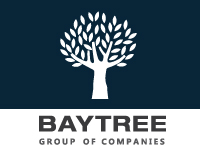CA
ON
부동산캐나다 (Korean Real Estate Post)
전화: 416-449-5552
1995 Leslie Street Toronto, ON
.jfif)
K-포차 ...미시사가(만두향프라자)
전화: 905-824-2141
169 DUNDAS ST. E. #7 Mississauga, ON

럭키조경 & 나무자르기
전화: 647-564-8383
4699 Keele St. Unit 218 Toronto, ON

럭키 여행사
전화: 416-938-8323
4699 keele st.suite 218 toronto Ontario M3J 2N8 toronto, ON

최고의 POS시스템 - 스마트 디지탈 POS
전화: 416-909-7070
4065 CHESSWOOD DR. NORTH YORK Toronto, ON
0.jfif)
준비된 바이어 그룹 , BAYTREE 이너써클
전화: 416-226-5999
7030 Woodbine Ave. Suite 103 Toronto, ON

한인 시니어 탁구협회
전화: 647-209-8933
1100 Petrolia Rd Toronto, ON
4.jpg)
홍이표치과
전화: 647-985-0456
9625 Yonge St #4, Richmond Hill, ON Toronto, ON
1.jfif)
행복부동산 -수잔정 Home Standards Brickstone Real
전화: 647-866-7878
180 Steeles Ave W Unit 30, Thornhill, ON

놀부 - 한식/일식/중식
전화: 416-221-4700
3 Elmhurst Ave, North York, ON

1004열쇠
전화: 416-895-1004
4 Blakeley Rd. Toronto, ON

스마트 디지탈 프린팅 - 인쇄 및 디자인
전화: 416-909-7070
4065 chesswood dr. Toronto, ON
.jfif)
It would be a place where all the visitors including me share the life stories and experiences through their activities,especially on life as a immigrant.
Why don't you visit my personal blog:
www.lifemeansgo.blogspot.com
Many thanks.
블로그 ( 오늘 방문자 수: 111 전체: 267,322 )
Korea Herald Editorial on Saemangeum Project.
lakepurity
2005-12-22
오늘자 코리아 헤랄드지의 "새만금 사업 재개" 고등법원의 판결에 대한
사설을 옮겨 보았읍니다.
[EDITORIAL]Go-ahead to Saemangeum
Korea's conservationists who had hailed a lower court ruling interdicting the Saemangeum tideland development project 10 months ago are now profoundly dismayed at Wednesday's Seoul Appellate Court verdict which flashed a green light to the 14-year-old public work. Government officials involved in this and other major infrastructure projects, on the other hand, are now elated at what they see as an apparent sign of the nation's judiciary becoming more conservative at least on environmental matters.
In February this year, Seoul Administrative Court accepted the arguments of environmental groups and some 3,500 North Jeolla residents, and ordered administration authorities to alter or cancel the Saemangeum project chiefly for three reasons: the authorities undertaking the project made insufficient environmental impact surveys, there is no guarantee of securing clean water in man-made lakes inside the dike, and Korea needs no more expansion of farmland because its agricultural industries are rapidly losing competitiveness internationally.
The appeals court expressed doubts about all these claims and concluded that environment and development should be mutually complementary. "Both environmental protection and development are for the welfare of humanity. One cannot be sacrificed for the other. When a development project has progressed considerably with a large investment, it cannot be halted for claims of environmental hazards which are not certain to occur," the verdict said.
It went on to present a positive opinion on the need to seek a self-sufficienct food supply with further development of arable land to prepare for a food crisis in the future which may take place due to climate change or full liberalization of agricultural trade. Reunification with North Korea which will come some day will also require vast increase in food supply, so the securing of fertile farmland remains an important task of today, the court ruled.
A judge's reasoning with things like climate change and national unification in support of a state project is something very unusual in trials these days. The court also rejected the plaintiffs' claim on the great value of tidal flats which will disappear when the 33 kilometer dike is completed. The appeals court pointed out that experts differed with each other on the value of the tideland as the habitat of migratory birds and as the source of income for coastal residents. The court "cannot cancel a project like this one solely on the basis of unspecified loss in the future," it said.
Legal as well as political circles have recently paid growing attention to court judgments on ideologically sensitive matters, focusing on liberal rulings not infrequently observed in environmental disputes and cases of conscientious objectors on compulsory military service. In the top echelon, the forthcoming replacement en masse of five Supreme Court justices by the middle of next year draws deep concerns on the liberal-conservative lineup of the nation's highest court of law.
Saemangeum is often called the biggest public work project in the five millennia of Korean history as it will create 40,100 hectares of dry land or 140 times the area of Yeouido which is earmarked to be used for farming and a variety of leisure and advanced industries, including the world's tallest tower. Now a landmark ruling has been made to reverse a negative judgment 10 months ago and the case will probably go to the Supreme Court.
No one can predict what will finally come out of the top court but we eagerly hope that it will be one that would establish a solid judiciary stand on environmental issues to keep lower courts from swinging between opposing public values. And we also hope that it will not take too much time to conclude the case which was first filed with the Seoul Administrative Court four years and four months ago.
2005.12.23